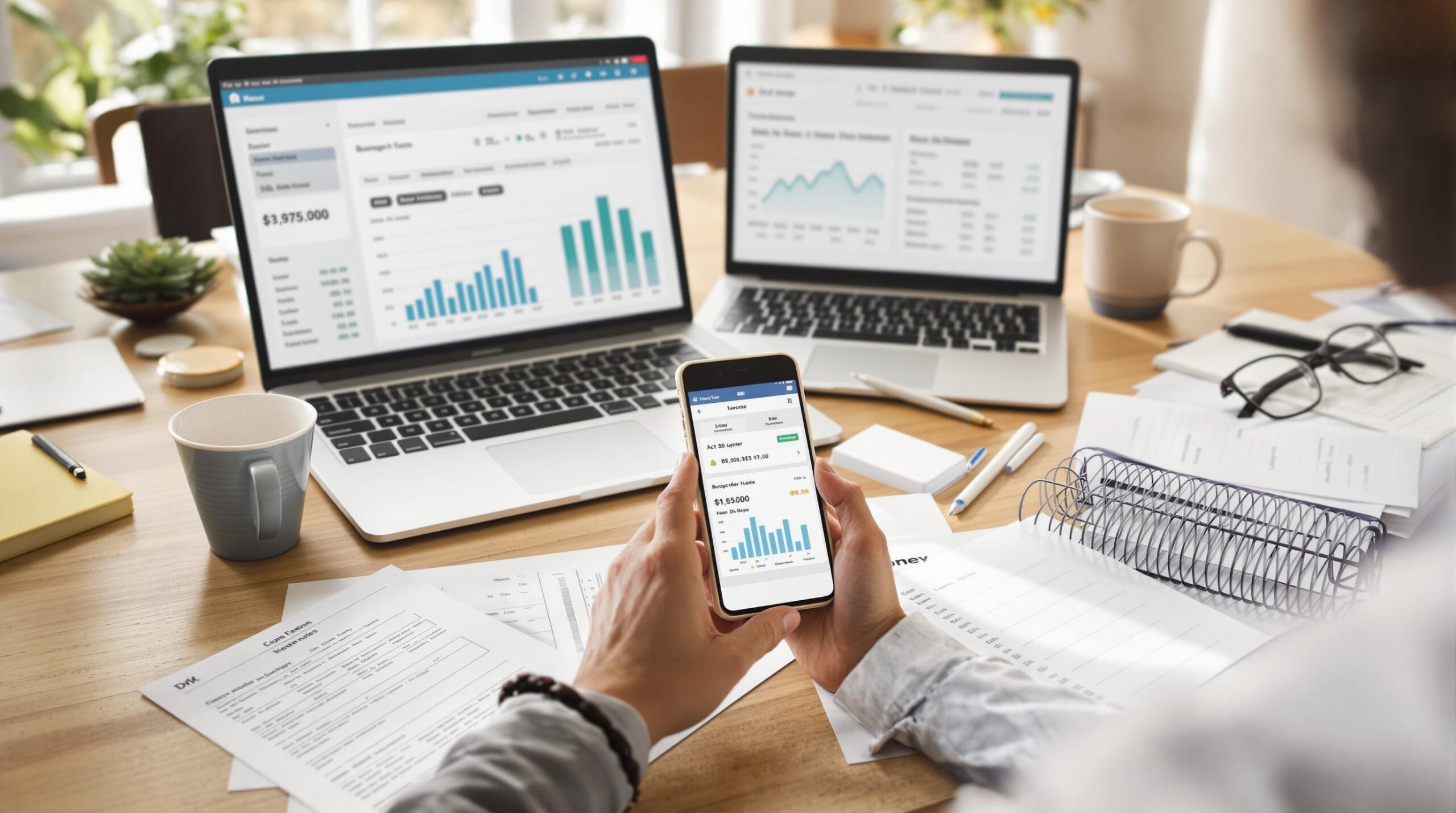In today’s digital age, technology has significantly transformed financial management. Financial apps revolutionize personal budgeting by offering enhanced convenience, accuracy, and personalized insights. These applications streamline processes, empower users with real-time data, and foster informed financial decision-making.
The Rise of Financial Apps
Smartphones have become indispensable. Their capabilities extend beyond communication, turning them into powerful financial tools. Financial apps emerged alongside this technological evolution, giving users unprecedented control over their finances. Unlike traditional budgeting methods that require manual tracking, these apps automate daily economic activities. This automation saves time, reduces errors, and enhances financial literacy among users.
According to a 2021 report by Statista, over 200 million Americans use smartphone financial services. This widespread adoption signifies a shift toward tech-driven financial self-management. Financial apps are increasingly popular due to their user-friendly interfaces and valuable features. This popularity underlines a vital change in managing personal finances towards tech-savvy solutions.
Key Features of Financial Apps
Financial apps offer a plethora of features designed to simplify budgeting. Firstly, they provide sophisticated expense tracking capabilities. Users can categorize expenses automatically, generating a clear financial picture. Secondly, these apps allow users to link accounts from various financial institutions. This synchronization offers a unified view of one’s economic standing.
Further exciting features include expense forecasting based on past spending patterns. This allows users to anticipate future spending and make informed choices. Real-time notifications keep users alert about any unusual activities or thresholds exceeded. Additionally, many apps offer personalized financial advice and goal-setting capabilities. These features inform users of the steps needed to meet their financial goals.
Enhanced Budgeting With Automation and AI
Automation and artificial intelligence (AI) lie at the heart of financial apps. They elevate traditional budgeting by removing tedious manual entry tasks. Companies integrate sophisticated algorithms that promptly analyze spending habits. These algorithms identify spending patterns and categorize transactions automatically.
Moreover, AI further personalizes budgeting by offering tailored recommendations. By evaluating user behavior, these recommendations enhance the individual’s financial health. Predictive models foresee potential financial bottlenecks, advising users early to avert issues. Such capabilities significantly improve financial accountability and control.
The Role of Data Security in Financial Apps
With the rise of financial apps, data security has become a paramount concern. Users entrust these apps with sensitive financial information, so app developers prioritize employing state-of-the-art security measures. Encryption technologies and two-factor authentication are common protections.
Additionally, European regulatory standards like GDPR emphasize data protection. App developers must comply with these robust frameworks. Ensuring user data privacy fosters trust between the user and the application. As users increasingly depend on these technologies, the commitment to security must remain unwavering.
Financial Literacy and Gamification
While financial apps offer convenience, they also serve as educational tools. Many apps incorporate elements of gamification to enhance engagement and financial literacy. Through interactive challenges and rewards, users learn sound financial habits. These games educate users on budgeting, saving, and prudent financial behavior.
Apps that integrate gamification often see higher user retention rates. By making financial management engaging, users willingly participate in their financial wellness. Gamified elements demystify the complexities of financial planning, encouraging users to continuously improve their financial literacy.
The Impact on Millennials and Generation Z
Financial apps are gaining significant traction among Millennials and Generation Z. These demographics are early adopters of new technologies, and they are more likely to rely on apps for their personal finance needs. Digital solutions align perfectly with their tech-savvy lifestyles and expectations.
Millennials and Gen Zs face financial challenges unique to their generations. Rising education costs and housing expenses make budgeting crucial. Financial apps offer them accessible, practical tools to navigate these challenges. By using financial apps, they manage their finances efficiently, helping secure their financial future.
Transitioning from Traditional Budget Methods
Historically, people used spreadsheets or pen-and-paper to manage budgets. While these methods are reliable, their limitations are evident. Manual tracking is time-consuming and prone to errors. Financial apps replace these outdated methods with advanced, intuitive solutions.
Transitioning to financial apps is straightforward. Most apps offer tutorials and support for first-time users. They simplify the budgeting process significantly. Users experience improved accuracy, accessibility, and knowledge of personal finances. This transition reflects a more modern, efficient approach to financial management.
Challenges and Considerations
Despite many benefits, challenges persist. Notably, users must stay vigilant about privacy concerns. Inaccurate algorithms might miscategorize expenses, affecting overall financial assessments. Users should periodically review transactions for accuracy.
Additionally, over-reliance on apps could diminish financial awareness. Users must actively engage with their finances beyond the app’s suggestions. These considerations highlight the importance of a balanced approach, using apps in conjunction with personal judgments.
Conclusion
In conclusion, financial apps have revolutionized personal budgeting, bringing efficiency and insight to financial management. They equip users with powerful tools to track expenses, set goals, and make informed financial decisions. By embracing technology, users can secure their financial future. For optimum benefit, users must balance technology use with personal financial responsibility. These innovations pave the way for a financially informed and empowered society. Financial apps will evolve as technology advances, shaping how people engage with their financial lives.


